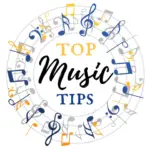Becoming a better musician takes time, dedication, and a genuine love for your craft.
Whether you’re just starting out or have been playing for years, there are always ways to improve your skills and become a more accomplished musician.
My team and I have gathered our top tips for improving your musical abilities!
Be sure to read to the end. #11 will surprise you, and #12 may just be the most important!
1. Practice Regularly
Even though this may seem the most obvious it is also one of the most critical steps to improving your musical skills and seeing success. Consistent practice is the key to improving as a musician.
Set aside dedicated time each day to practice your instrument. Treat it as a priority and make it a habit. Regular practice will not only help you develop muscle memory and improve your technique but also build discipline and focus.
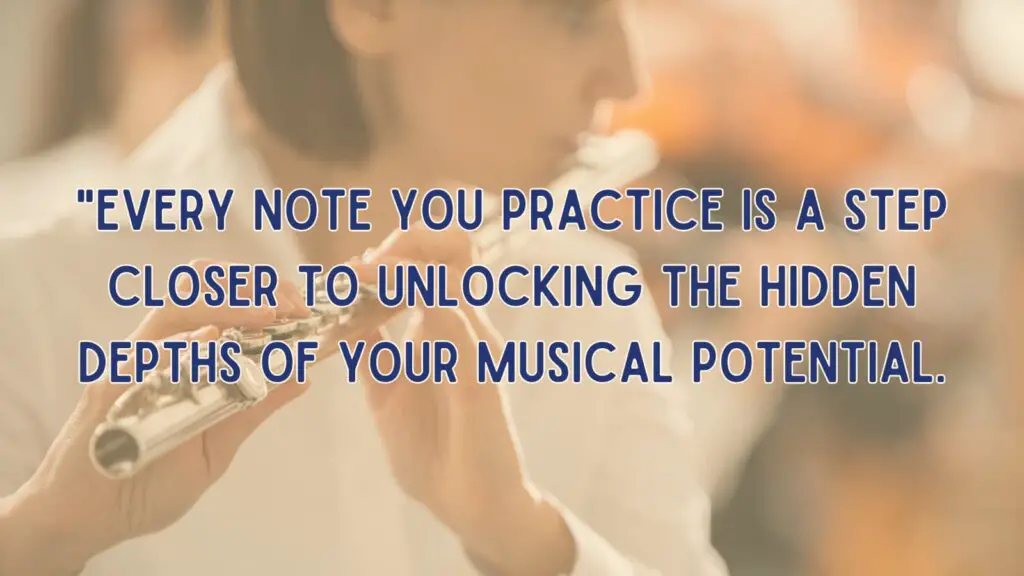
As I learned to play the flute in high school and college there were a few years that I was practicing my instrument upwards of 4-5 hours a day. That may seem extreme but to be considered on the professional level I knew it would take that much dedication and effort!
2. Set Goals
Having clear goals in your musical journey is essential. Set both short-term and long-term goals to keep yourself motivated. Break them down into smaller milestones and celebrate each achievement along the way. Goals will give you direction and purpose in your practice sessions.
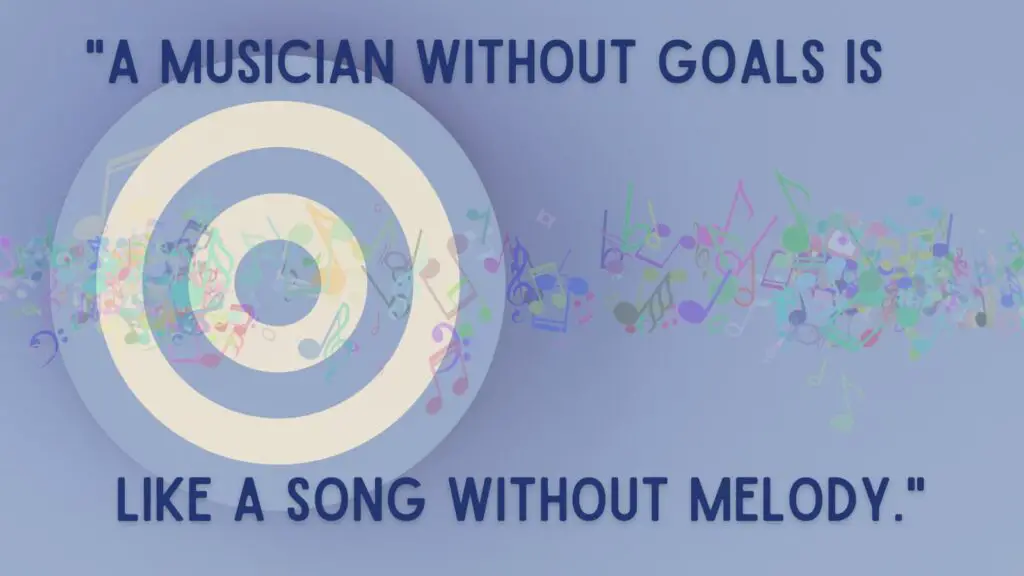
My favorite way to set goals was to look forward to my next performance. I always wanted to be ready so I analyzed what being ready would look like for me and then broke it down into smaller steps to help me get there.
3. Focus on Technique
Mastering proper technique is crucial for any musician. Take the time to learn the fundamentals of your instrument and focus on correct posture, hand placement, and breathing techniques. A solid technical foundation will enable you to play more efficiently and with greater control.
In high school, I had a private instructor that taught me to focus on changing the way I held my wrist. I was amazed at the results and how much easier playing difficult runs became.
4. Expand Your Musical Knowledge
My favorite classes in college were the ones where I got to learn different instruments. Not only was I able to play the flute, but I learned how to play brass instruments, the saxophone, percussion, string instruments, and learned how to conduct a band.
To become a well-rounded musician, it’s important to expand your musical knowledge beyond your primary instrument. Broaden your horizons and explore different genres and styles of music. This exposure will enhance your creativity, inspire new ideas, and give you a broader perspective on music.
Learn Music Theory
A large part of expanding your musical knowledge is learning the fundamentals of how music works on a technical level.
Understanding music theory provides a framework for composition, improvisation, and understanding the language of music. Dive into the basics of music theory, such as scales, chords, and harmony. This knowledge will empower you to communicate with other musicians effectively.
Study Different Genres
Explore different genres of music and study their unique characteristics. Whether it’s jazz, classical, rock, or world music, each genre offers its own techniques and interpretations. Analyze the styles and techniques used in each genre and incorporate elements that resonate with you into your own playing.
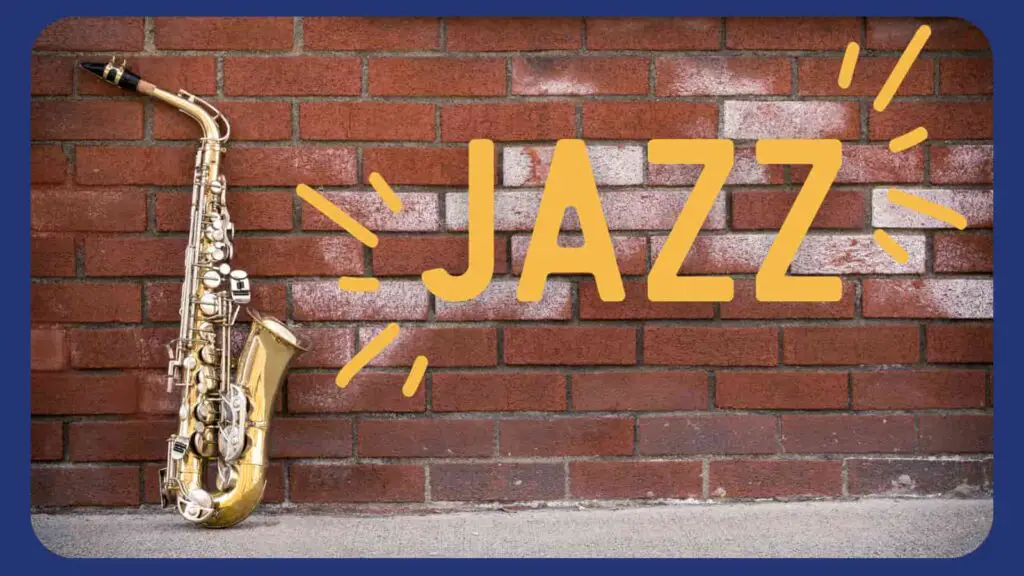
My favorite class in University was “The Fundamentals of Jazz”!
5. Collaborate with Others
One of the best parts of making music is doing it with others. It’s a fantastic way to connect with other human beings and really get into the flow of making beautiful and amazing music that inspires!
Engaging with other musicians can broaden your musical horizons and expose you to new ideas and perspectives. Consider joining a band or ensemble to experience the dynamics of playing with others and learn how to work together to create cohesive and memorable music.
Join a Band or Ensemble
Joining a band or ensemble allows you to develop your skills in a group setting. It teaches you to listen to others, play in sync, and adapt to different musical dynamics. Collaborating with fellow musicians can push you out of your comfort zone and help you grow as a musician.
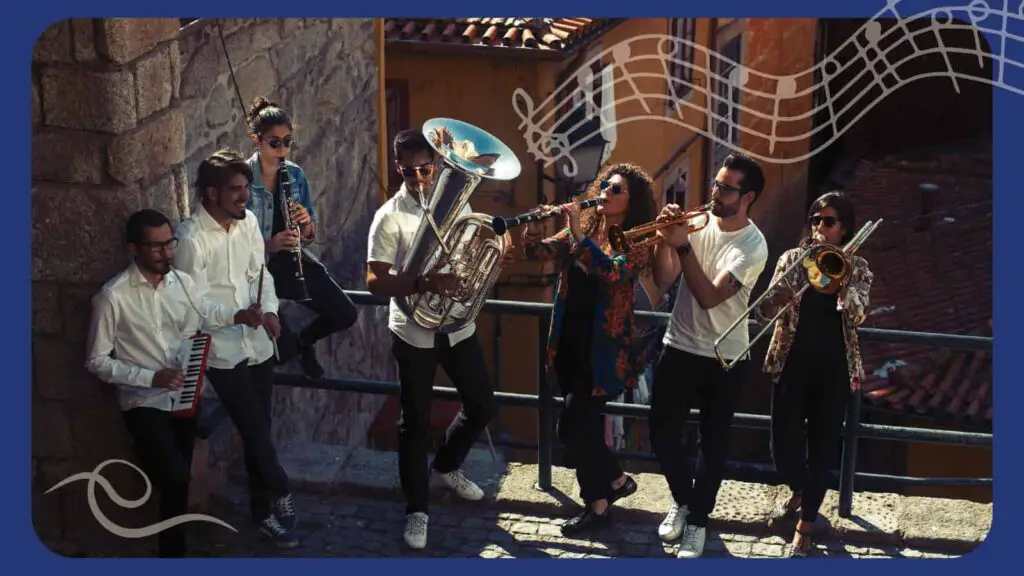
Attend Jam Sessions
Jam sessions provide a platform to interact with musicians from various backgrounds and skill levels. They offer opportunities for improvisation and spontaneous musical exchanges. Participating in jam sessions can improve your ability to think on your feet and respond creatively in a musical context.
6. Perform Live
Performing live is a significant milestone for any musician. It helps you build confidence, connect with an audience, and refine your stage presence. Start by seeking opportunities to perform at open mic nights or small local venues. As you gain experience, aim for gigs at larger venues and events.
Start with Open Mic Nights
Open mic nights are a great way to gain exposure and showcase your talent. These events provide a supportive environment for emerging artists to perform in front of a live audience. Use open mic nights as a platform to refine your performance skills and receive valuable feedback.
Seek Opportunities for Gigs
As you progress, actively seek out opportunities for gigs. Reach out to local venues, event organizers, or even create your own gigs. Performing in front of larger audiences will challenge you to deliver your best and expose your music to a wider audience.
5 Gig Ideas for any instrument
- Jazz club: Look for local jazz clubs or bars that feature live music. They often have open mic nights or hire bands to perform. Saxophone, trumpet, flute, and other band instruments are commonly used in jazz music.
- Wedding and event gigs: Contact event planners, wedding venues, and private party organizers. Offer your services to play during wedding ceremonies, cocktail hours, or corporate events. These occasions often require live music, and your instrument can add a sophisticated touch.
- Street performances: Find bustling areas or tourist attractions where street performances are allowed. Set up a small stage or simply play on the sidewalk. Passersby may stop to listen, and you could even earn some money through tips.
- Restaurants and cafes: Approach local restaurants and cafes that have a cozy atmosphere and are known for hosting live music. Many establishments are interested in creating a pleasant ambiance for their customers and may welcome the idea of having a saxophonist, flutist, trumpeter, or other band musicians perform during certain hours.
- Community events and festivals: Stay updated on upcoming community events and festivals in your area. These can range from holiday celebrations to cultural festivals. Reach out to event organizers and offer to perform as part of the entertainment lineup. Your instrument can contribute to the festive atmosphere and attract a diverse audience.
7. Embrace Failure and Learn from Mistakes
Mistakes and failures are part of the learning process. Embrace them as opportunities for growth and improvement. Don’t be afraid to take risks and push your boundaries. Analyze and reflect on your performances to identify areas for improvement and develop strategies to overcome challenges.
“Success is not built on success. It’s built on failure. It’s built on frustration. Sometimes it’s built on catastrophe.”
Sumner Redstone
8. Don’t Be Afraid to Take Risks
Exploring new techniques, experimenting with different musical styles, or even writing your own compositions involves taking risks. Embrace the unknown and be open to making mistakes. It’s through these risks that you’ll discover your unique musical voice and continue to evolve as a musician.
9. Analyze and Reflect on Performances
After each performance, take the time to analyze and reflect on your strengths and weaknesses. Consider what worked well and what could be improved. Seek constructive feedback from fellow musicians or trusted mentors. This self-reflection will help you refine your skills and refine your performances.
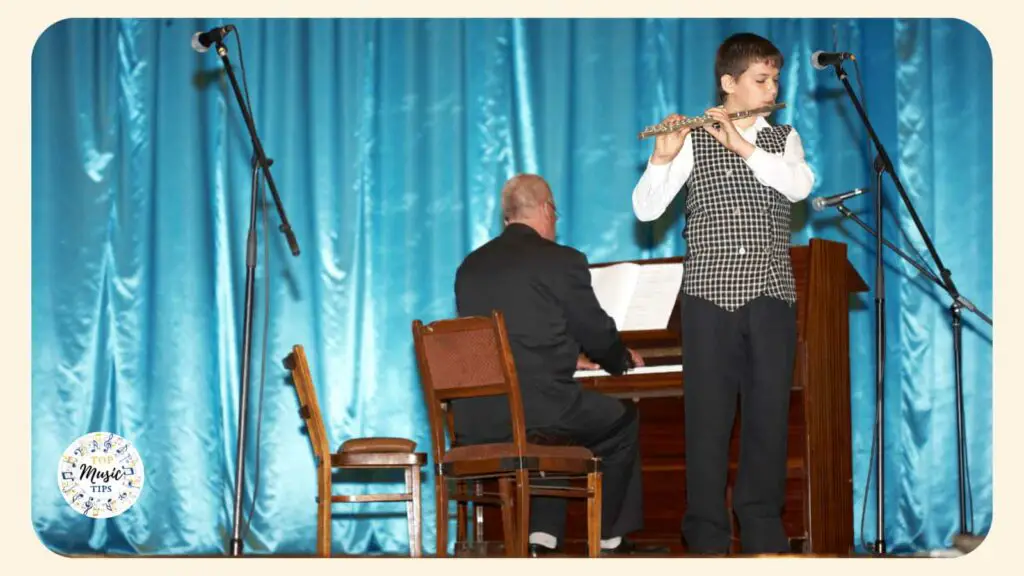
10. Seek Feedback and Take Lessons
Seeking feedback from experienced musicians and taking lessons can significantly accelerate your growth as a musician. Collaborating with a music mentor and taking structured lessons will provide guidance, personalized instruction, and constructive criticism to help you overcome challenges and reach new heights in your musical journey.
Find a Music Mentor
Find a music mentor who can offer guidance, share their experience, and provide valuable insights. A mentor can help you navigate challenges, set realistic goals, and provide accountability in your musical development. Their expertise and support can be invaluable in your journey to becoming a better musician.
Take Music Lessons
Taking music lessons, whether privately or through a reputable music school, can provide structured learning and guidance. A qualified instructor can assess your skills, identify areas for improvement, and tailor lessons to your specific needs.
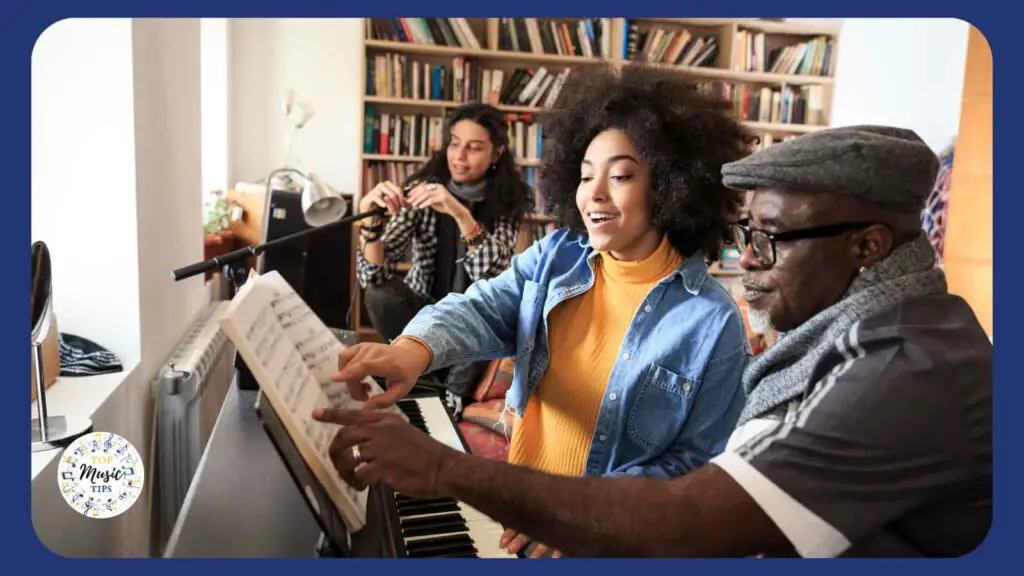
They can teach you advanced techniques, introduce you to new musical concepts, and provide feedback to refine your skills. Regular lessons will keep you motivated, accountable, and continuously progressing as a musician.
11. Use Technology to Enhance Your Skills
In today’s digital age, technology offers countless resources to enhance your musical abilities. Utilize recording and editing software to record and analyze your performances. This allows you to identify areas for improvement and track your progress over time. Additionally, explore online learning platforms and tutorials that offer a wealth of educational content and interactive lessons.
Utilize Recording and Editing Software
Recording your practice sessions and performances allows you to objectively assess your playing. Use editing software to analyze your technique, timing, and overall sound quality. This technology enables you to make precise adjustments and identify areas that require further attention.
Explore Online Learning Resources
Take advantage of the vast array of online learning resources available. Websites, video tutorials, and online courses provide convenient access to a wealth of musical knowledge. Explore platforms that offer lessons, sheet music, play-along tracks, and forums to connect with other musicians and expand your musical repertoire.
12. Take Care of Your Instrument and Yourself
To be a better musician, it’s important to take care of your instrument and prioritize your physical and mental well-being. Maintaining your instrument’s condition ensures optimal sound quality and performance. Similarly, nurturing your physical and mental health allows you to approach music with energy, focus, and creativity.
Maintain and Clean Your Instrument
Regularly clean and maintain your instrument to keep it in top condition. Follow manufacturer guidelines for cleaning, restringing, and storing your instrument. Proper maintenance ensures optimal sound projection, playability, and longevity.
Prioritize Physical and Mental Well-being
Being a musician can be physically and mentally demanding. Take care of yourself by incorporating exercise, healthy eating habits, and sufficient rest into your routine. Prioritize mental well-being through mindfulness practices, stress management techniques, and finding a healthy balance between musical pursuits and personal life.

13. Stay Inspired and Passionate
Maintaining inspiration and passion is crucial for continuous growth as a musician. Keep your love for music alive by staying engaged, exploring new artists and genres, and seeking fresh sources of inspiration.
5 ways to keep it fresh and stay inspired
- Create a musical collage: Cut out snippets of different musical notes, lyrics, and images from magazines or printouts. Arrange and glue them together to create a unique visual representation of your musical vision. Hang it where you can see it daily for a constant reminder and inspiration.
- Take a musical field trip: Visit a local instrument shop or music museum and immerse yourself in the world of music. Try out different instruments, learn about their history, and engage with the musical artifacts. The experience can reignite your passion and spark new ideas.
- Musical journaling: Start a dedicated journal for your musical ideas, thoughts, and inspirations. Use it to jot down melodies, lyrics, or even doodle musical sketches. Regularly revisit your journal to reflect on your progress and rediscover forgotten gems.
- Create a personalized music playlist: Curate a playlist of songs that resonate with you and reflect your musical aspirations. Include tracks from different genres and eras that inspire you creatively. Listen to the playlist whenever you need a boost of musical motivation.
- Experiment with unconventional instruments: Step outside the traditional realm of instruments and explore unconventional options. Incorporate everyday objects like glass bottles, pots, or even kitchen utensils into your music-making process. The unconventional sounds can unlock unique musical ideas and ignite your creativity.
14. Attend Concerts and Music Festivals
Immerse yourself in live performances by attending concerts and music festivals. Experiencing the energy and talent of other musicians can reignite your own passion for music and expose you to new styles and approaches.

15. Listen to Different Artists and Styles
Broaden your musical horizons by actively listening to a wide range of artists and styles. Pay attention to the nuances of different genres, instruments, and arrangements. This exposure will spark creativity, inspire new ideas, and help you develop a unique musical identity.
Conclusion
Becoming a better musician is a lifelong journey that requires dedication, perseverance, and a genuine love for music. By following these 15 tips, you can enhance your skills, broaden your musical knowledge, and evolve as a musician. Remember to practice regularly, collaborate with others, perform live, embrace failure, seek feedback, utilize technology, take care of your instrument and yourself, and stay inspired. Embrace the joy of making music and never stop exploring and growing as a musician.
Thank you for reading this article on how to be a better musician. Remember, the journey to musical excellence is unique for each individual. Embrace the process, enjoy the music you create, and never stop growing as a musician.
We hope this article has been helpful and informative for you in your musical journey. Please let us know if there is anything that we could add or change to make this article a better resource for our readers.
Please e-mail us at: [email protected] to let us know how we are doing!
Disclaimer: This post may contain affiliate links. We only recommend high-quality products that are used and recommended by real musicians. If you use these links to buy something we earn a small commission.
